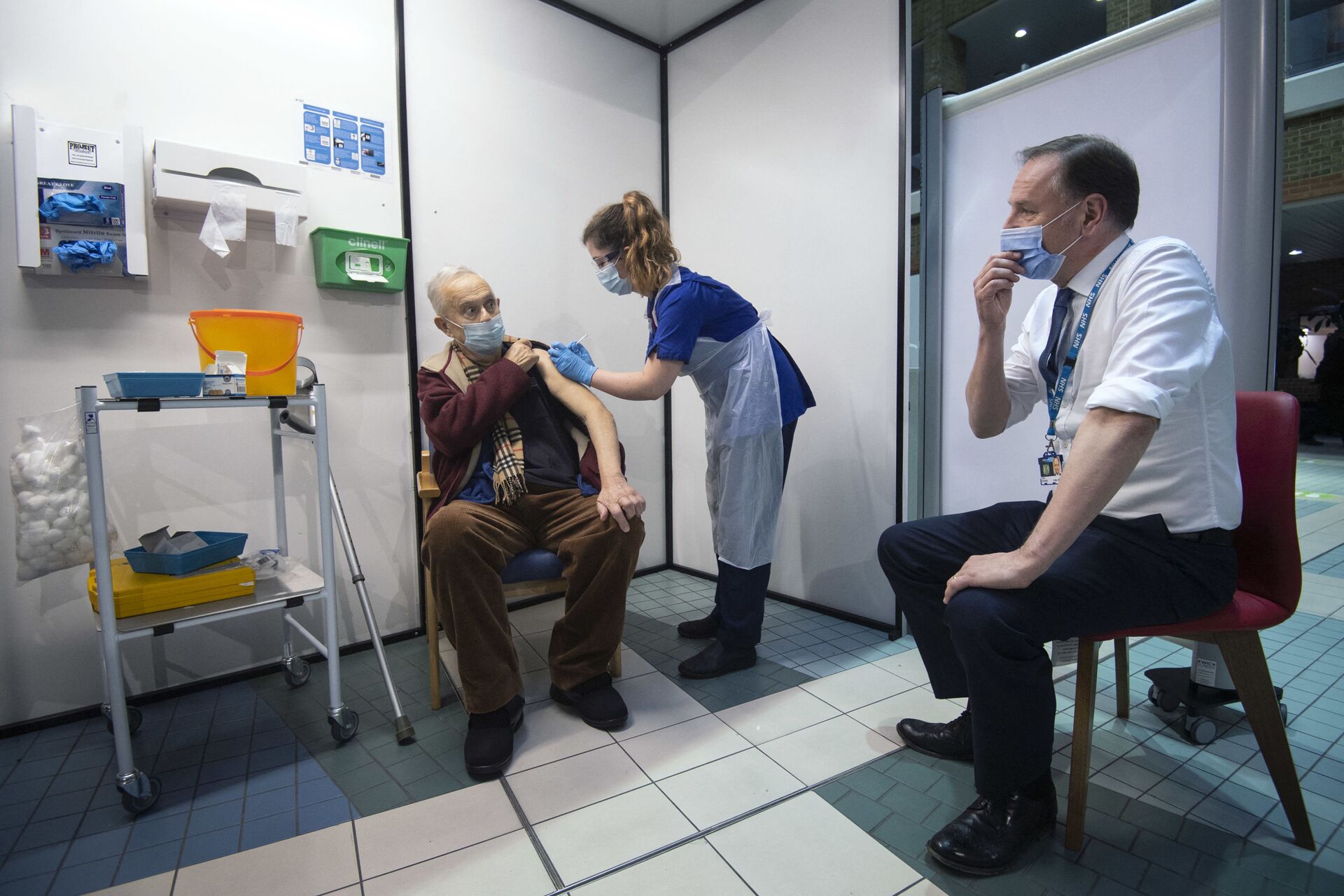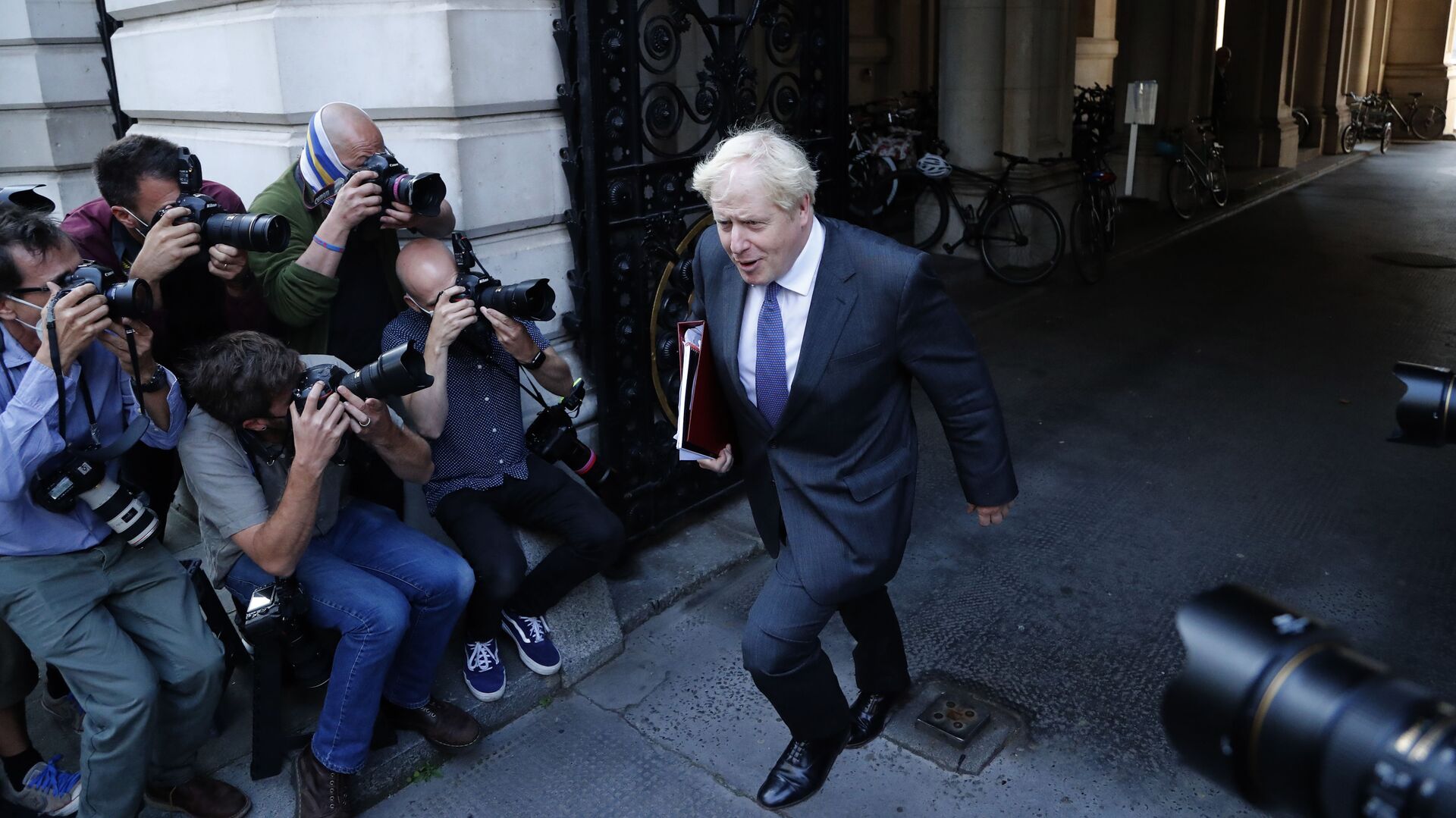British Prime Minister Boris Johnson has announced a phased plan to end England's COVID-19 lockdown, offering a "cautious" approach to try to prevent a return to large-scale restrictions, which would have an irreversible effect on the country's economy.
"The threat remains substantial", Johnson told parliament, adding that "we're able to take these steps because of the resolve of the British public and the extraordinary success of our NHS in vaccinating more than 17.5 million people across the UK".
"The vaccination programme has dramatically changed the odds in our favour," he continued, noting that "today the end really is in sight... and a wretched year will give way to a spring and summer that will be very different and incomparably better than the picture we see around us today".
Speaking about the newly emerged strains of the virus, the British head of government expressed hope there would soon be new jabs that would "defeat these vaccine-escaping variants".

Britain has inked a supply deal for at least 50 million doses of vaccines against new variants with Germany's CureVac, while developers of other shots, such as the locally produced Oxford-AstraZeneca vaccine, are also looking to redesign their product to give more specific protection against newly emerged variants.
"We are confident that all our vaccines are effective in reducing death and serious disease, and we have no reason to doubt that they are effective in reducing death and serious disease with the new variants as well," Johnson remarked, saying Britain doesn't have any supply issues at the moment and expressing confidence the county will soon meet its vaccination targets.
Being pressured to allow more freedoms to millions of people still in isolation and extend a helping hand to thousands of shuttered businesses, especially in the aftermath of the latest lockdown that began in early January, the prime minister said the first stage would see schools returning on 8 March. Minimal socialising outdoors would be allowed, he promised.
The roadmap would then pass through four stages, each stage coming in four-weekly intervals. The final phase, when most restrictions are expected to be lifted, won't come until around 21 June at the earliest.
Authorities in Scotland, Wales and Northern Ireland, which are responsible for their own public health, are expected to also ease restrictions over the coming months.


